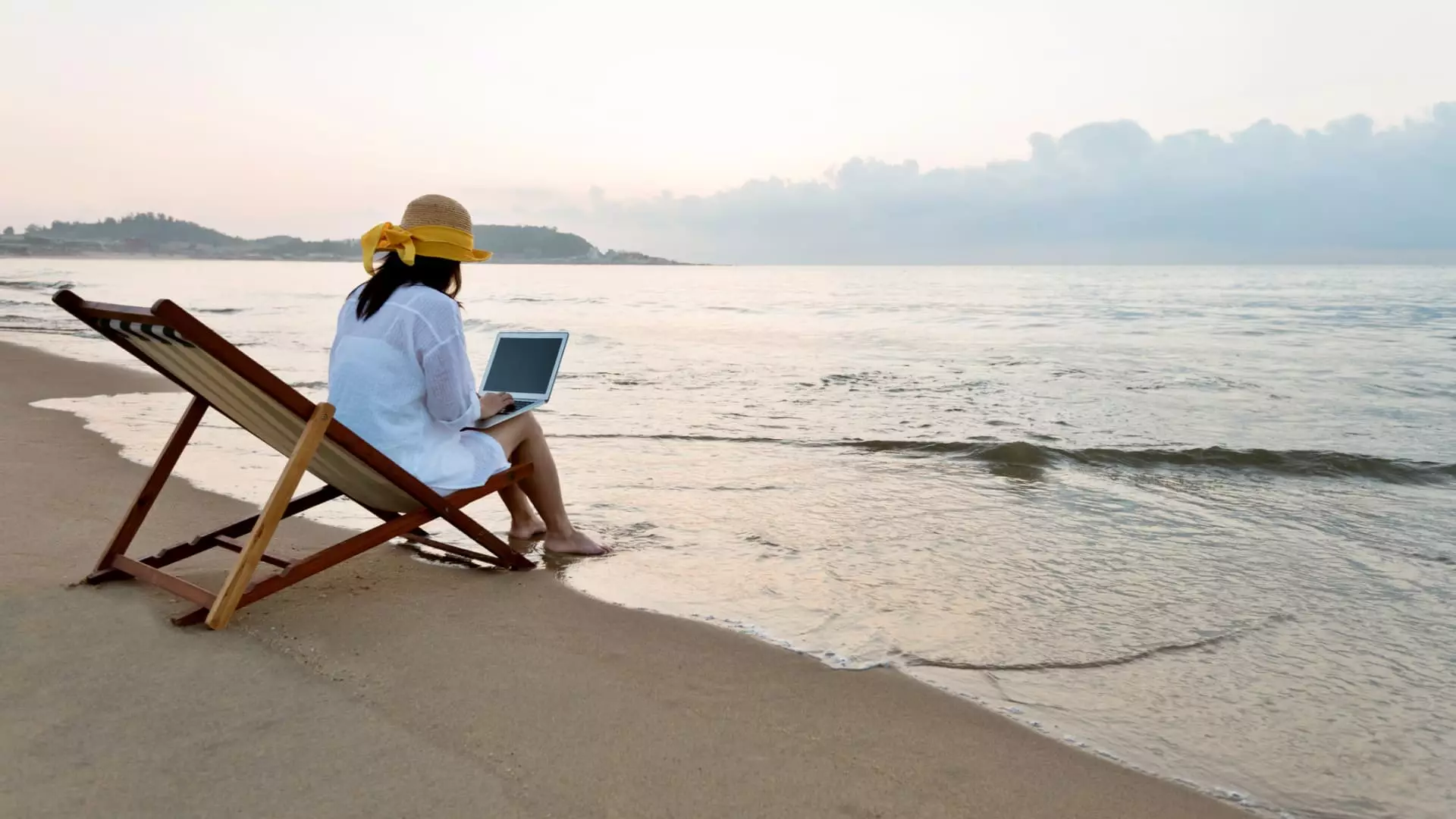The landscape of holiday travel in America is undergoing a significant transformation. Fueled by the effects of the pandemic, many Americans are redefining their travel experiences by integrating work and leisure. A recent Deloitte survey illustrates that 49% of employed travelers plan to perform work tasks during their holidays, a noticeable increase from 34% just a year prior. This rising trend emphasizes the growing perk of remote work, which has become an essential feature of modern employment. By allowing travelers to log in from anywhere, businesses are indirectly encouraging employees to embrace longer and more adventurous trips.
The flexibility of remote work not only opens new doors for vacations but also empowers individuals to make travel plans that would have seemed impractical before. Particularly appealing to younger generations such as Gen Z, who comprise a significant proportion of “laptop luggers,” this trend highlights how work-life balance is evolving.
Interestingly, the financial aspect of travel presents a dichotomy. The demographics of those opting for holiday travel are varied, with high-earning individuals showing a propensity to travel more freely than their lower-income counterparts. According to data from Morning Consult, about 52% of individuals earning over $100,000 reported that they can comfortably afford holiday travel expenses, showcasing how higher-income brackets are shaping current travel trends.
Despite inflationary pressures on the economy, individuals in this income group exhibit a decreased sensitivity to price fluctuations, as explained by financial experts. Stacy Francis of Francis Financial provides insight into this phenomenon, noting that higher-income consumers are generally less worried about budgeting compared to those earning lower wages. This difference in spending habits underscores a stark distinction in how wealth influences travel choices.
Millennials—the cohort comprised of those born between 1980 and 1996—are leading the charge in holiday travel spending. Data indicates that they plan to take an average of 2.6 trips this holiday season, with a staggering average expenditure of approximately $3,927. This generation’s willingness to allocate substantial portions of their budgets reflects a prioritization of experiences over material possessions, a shift that has become more pronounced as lockdowns have lifted and travel resumes.
However, increased travel plans do not equate to reckless spending. A Bankrate report reveals that a significant majority—around 83% of holiday travelers—are employing strategies to conserve their finances. This includes opting for road trips over flights, utilizing credit card points, or arranging travel on less popular days to sidestep peak pricing.
While the trend of combining work with holiday enjoyment seems appealing, it is pivotal for employees to consider the parameters surrounding their remote work arrangements. Julia Pollak from ZipRecruiter highlights the importance of understanding company policies. Many companies have specific stipulations regarding remote work that could restrict employees from working from certain locations. This reality poses a risk for those attempting to blend work obligations with vacation time without explicit permission.
It’s also worth noting that not all work environments are conducive to productivity outside of an office setting. Ensuring reliable Wi-Fi and other necessary resources in chosen travel venues is crucial for remote effectiveness. Pollak’s advice to touch base with management before embarking on a working vacation is particularly salient, as a clear understanding of expectations can mitigate the risk of disciplinary measures.
American holiday travel is becoming increasingly dynamic as a result of remote working capabilities. The rising number of “laptop luggers” represents not just a shift in how vacations are conceptualized but also an evolving societal view towards work and life balance. While economically privileged individuals dominate travel statistics, concerns regarding budget and cost-cutting strategies remain prevalent across all demographics.
As individuals prepare for this holiday season, the blend of work and personal time will likely continue to shape travel behaviors. Emphasizing a need for careful planning and awareness of company policies, the intersection of work and leisure reflects profound changes in both professional and personal spheres. With experiences taking precedence over traditional perceptions of travel, the future is ripe for innovative travel arrangements that cater to the modern worker’s lifestyle.

